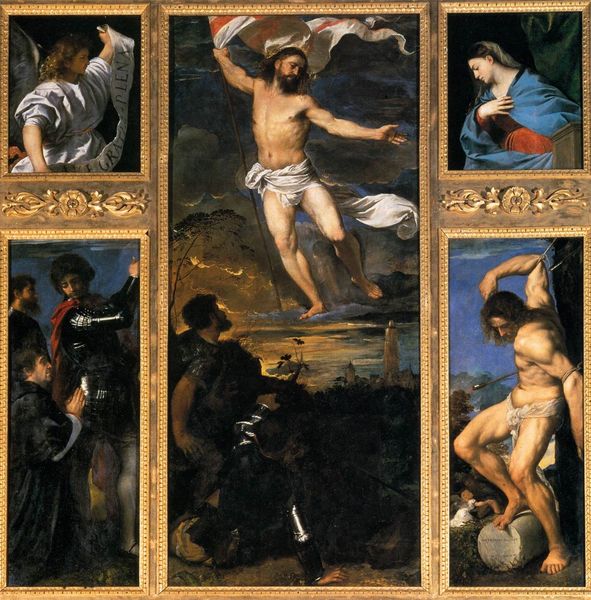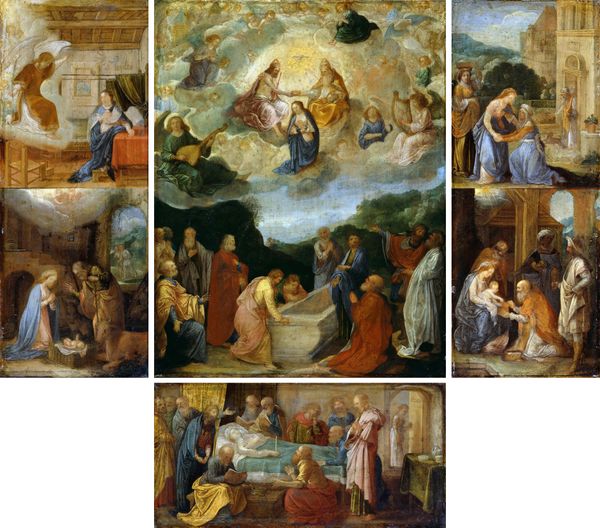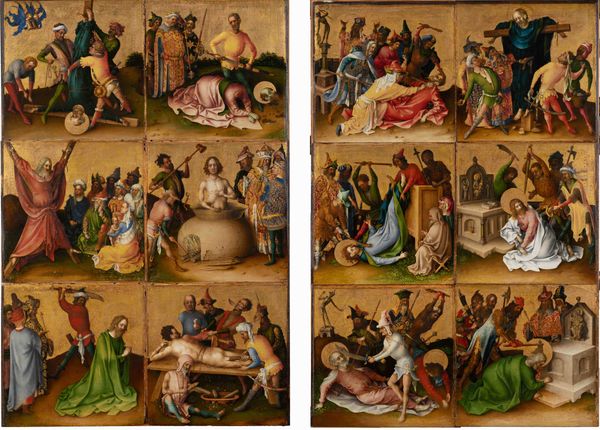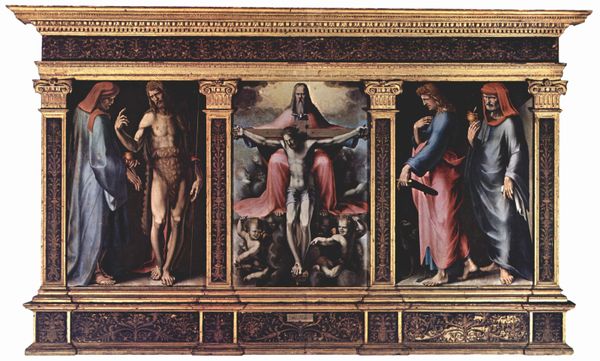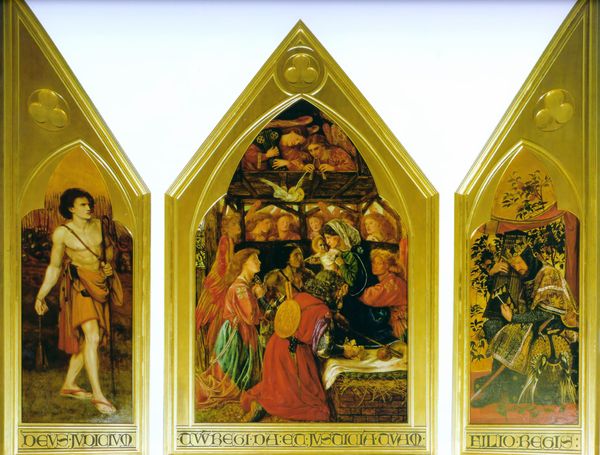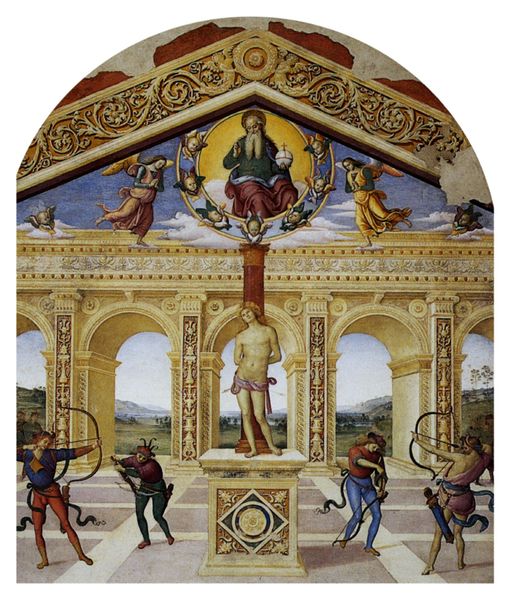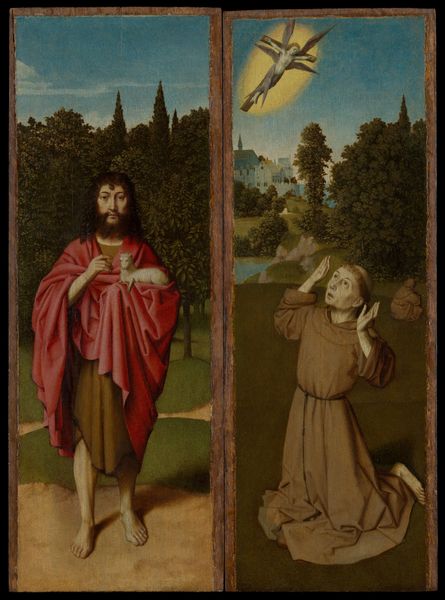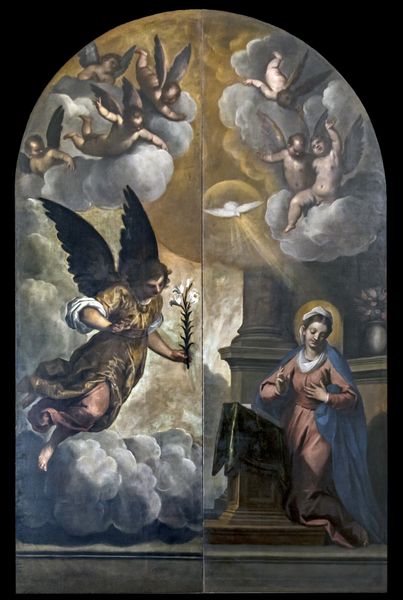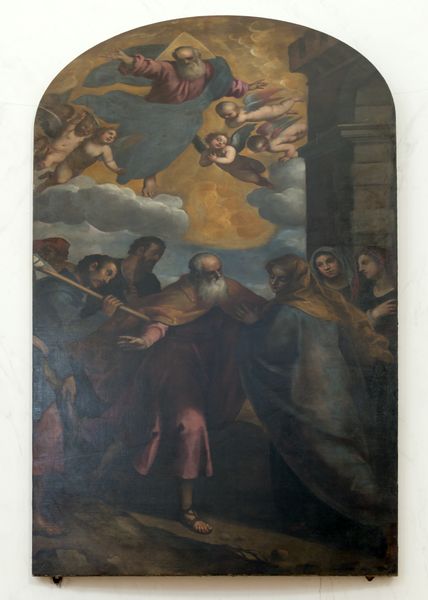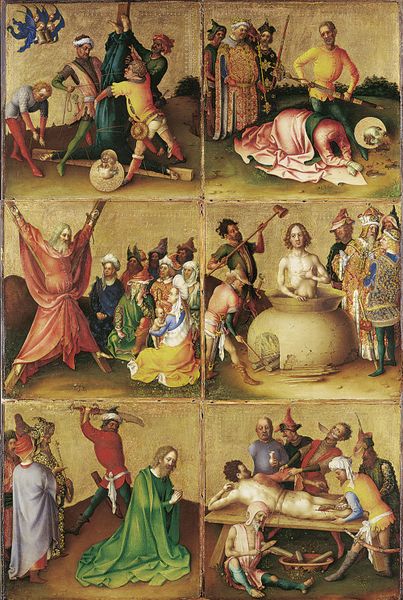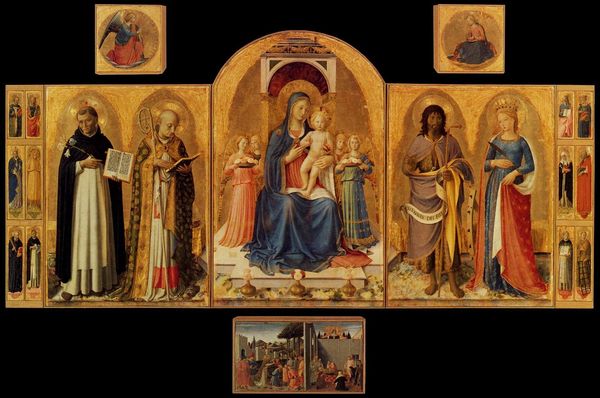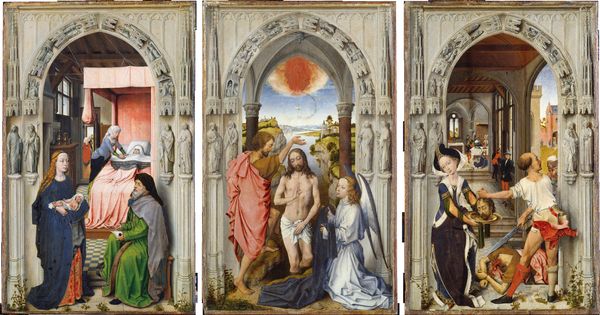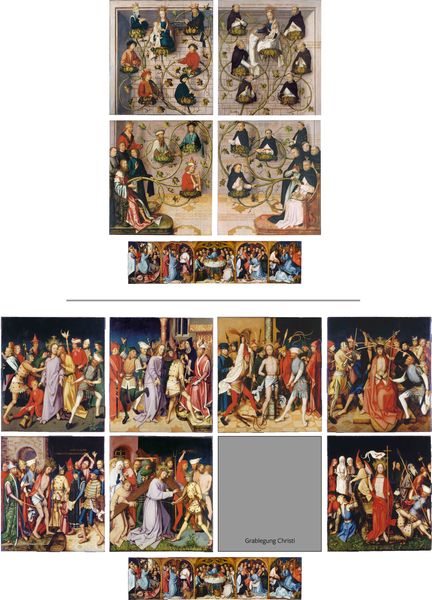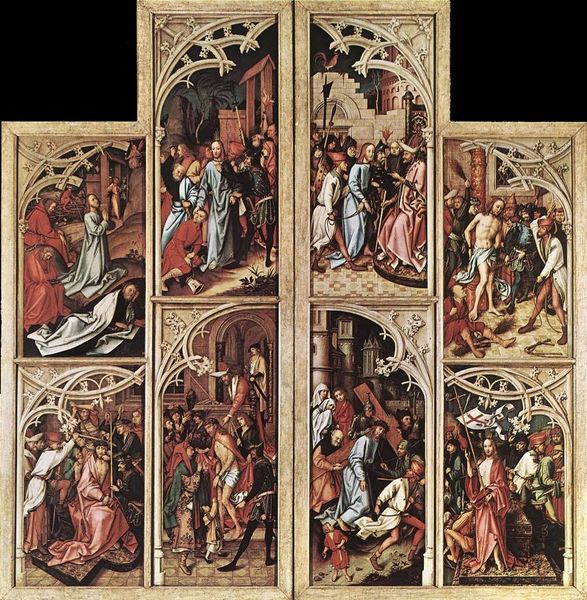
panel, oil-paint
#
portrait
#
high-renaissance
#
panel
#
allegory
#
oil-paint
#
figuration
#
oil painting
#
painterly
#
christianity
#
history-painting
#
italian-renaissance
#
angel
#
christ
Copyright: Public domain
The Polyptych Ponteranica was created by Lorenzo Lotto in the early 16th century in Venice, Italy and is oil on wood. It's a complex altarpiece reflecting the religious and social values of its time. The image presents a hierarchy of holy figures with the risen Christ at the top, looking down on the angel, Mary, John the Baptist and other saints. Note how the art blends religious symbolism with human emotion, which was a distinct characteristic of the Italian Renaissance. Lotto's work often challenged the established artistic norms of Venice, where there was a tension between tradition and emerging humanist ideals. Looking at this, it’s useful to remember how artists in the Renaissance were influenced by religious institutions and wealthy patrons. Historical records, such as church documents and private correspondence, can help us understand the relationship between the artist and those who commissioned artworks, and so to interpret the religious and social meanings embedded in the image. Art history is not just about aesthetics but about understanding cultural values.
Comments
No comments
Be the first to comment and join the conversation on the ultimate creative platform.
